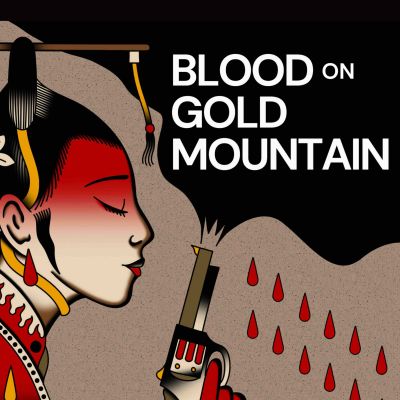1871 Los Angeles was a dangerous place, especially for the refugees, migrants and troublemakers who lived on Calle De Los Negros, at the heart of Chinatown. Yut Ho, a beautiful young refugee, came to LA and fell in love, only to be drawn into a showdown between two of Chinatown's most notorious gangsters. Before long, the entire city was caught up in a life or death struggle where old-world values of kinship, honor and loyalty clashed with new-world issues of race, sex, and identity. The ensuing conflict would threaten the lives of Yut Ho and all the denizens of Chinatown– and would change the face of Los Angeles forever. This true but largely forgotten event from California's past is brought to you by the Holmes Performing Arts Fund of the Claremont Colleges, the Music Department of Scripps College, the Pacific Basin Institute of Pomona College, the Entrepreneurial Musicianship Department at The New England Conservatory, and the Public Events Office at Scripps College...
http://bloodongoldmountain.com
episode 1: Iron Horse Road: a Tale from Gold Mountain
Iron Horse Road: a Tale from Gold Mountain recounts one of the great untold epics of American history: The story of the Chinese laborers–neither truly enslaved nor truly free–who built the most rugged stretches of the Transcontinental Railroad.
More than 150 years ago, these Gold Mountain Men tunneled through mountains, dangled over cliffs, and dragged entire trains over alpine summits where other Americans feared to tread. The prosperity of the gilded age was founded on their blood, sweat and grit, but their story has long been suppressed, minimized and forgotten.
For Iron Horse Road, the father/son team behind Blood on Gold Mountain retrace the steps of these workers from the Sacramento hills to the snows of Donner Summit. Equal parts history and travelogue, Iron Horse Road uses binaural 3D audio to transport the listener to deep canyons, echoing caverns and windswept peaks–a world where adventure is always around the corner, and the past is carved in blood and stone.
Note:
I mention that Cantonese was a common language among the Railroad Chinese. This Is true, however, it is important to acknowledge that other dialects, such as Toishan, and languages, such as Hakka, were spoken by large numbers of Chinese laborers in the old west.
Bibliography:
Importance of Transcontinental Railroads:
https://www.history.com/news/transcontinental-railroad-changed-america
https://www.bls.gov/opub/mlr/2015/beyond-bls/railroads-old-industry-still-vital-in-todays-economy.htm
https://www.american-rails.com/i.html#:~:text=With%20World%20War%20I's%20outbreak,issues%20on%20the%20home%20front
https://www.aar.org/wp-content/uploads/2022/09/AAR-Rail-Shutdown-Report-September-2022.pdf
Union Pacific vs Central Pacific
https://www.up.com/heritage/history/overview/construction/index.htm
https://www.trains.com/trn/railroads/history/sherman-hill-the-first-rocky-mountain-railroad-pass/
https://www.truckeehistory.org/native-americans.html
John Henry
https://www.hmdb.org/m.asp?m=165173
https://www.americanheritage.com/iron-spine
https://www.constructionequipmentguide.com/hand-built-railroad-defines-unites-nation/8310
https://railroad.lindahall.org/essays/tunnels-bridges.html
https://www.trains.com/wp-content/uploads/2020/10/150transconrrebook.pdf
Work Conditions
https://books.google.com/books?id=Kig4DQAAQBAJ&pg=PA71&lpg=PA71&dq=central+pacific+120+degrees+railroad&source=bl&ots=TVLWIzO6xH&sig=ACfU3U3qrNRSX6nerMgudT2OYSAgIq3zSA&hl=en&sa=X&ved=2ahUKEwj8tPiKjcn_AhWliO4BHX-8Aj8Q6AF6BAhJEAM#v=onepage&q=central%20pacific%20120%20degrees%20railroad&f=false
https://www.youtube.com/watch?v=Pl2WDfkTa3g
https://www.freightwaves.com/news/freightwaves-classics-construction-of-the-transcontinental-railroad-depended-on-chinese-immigrants
